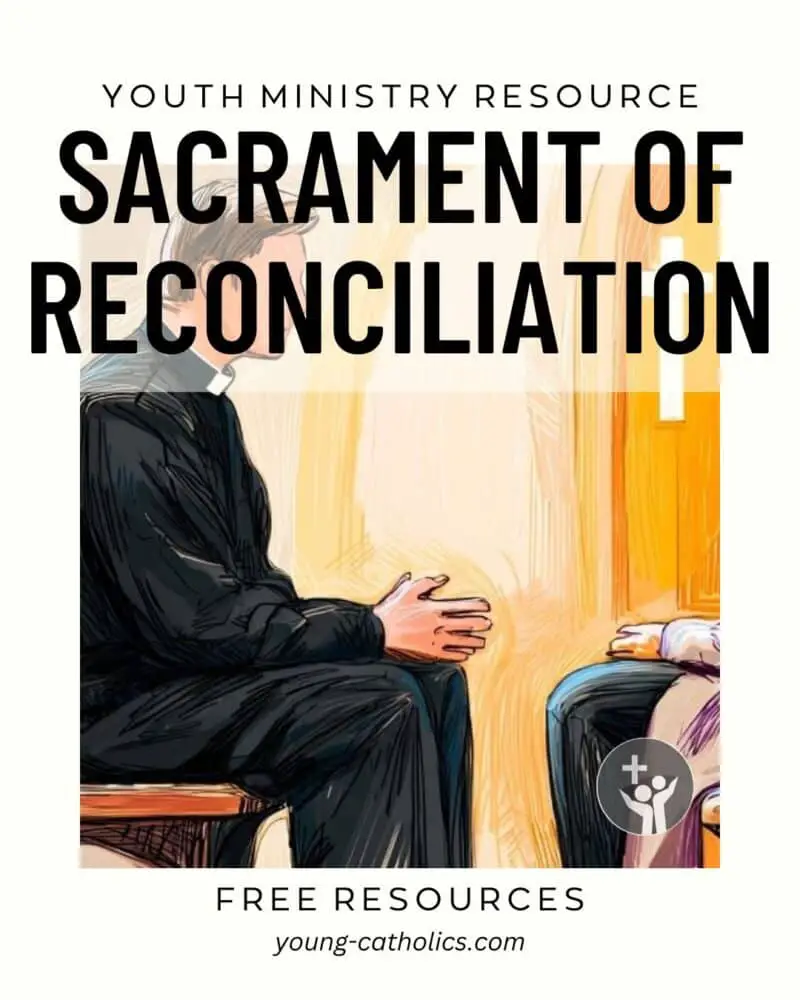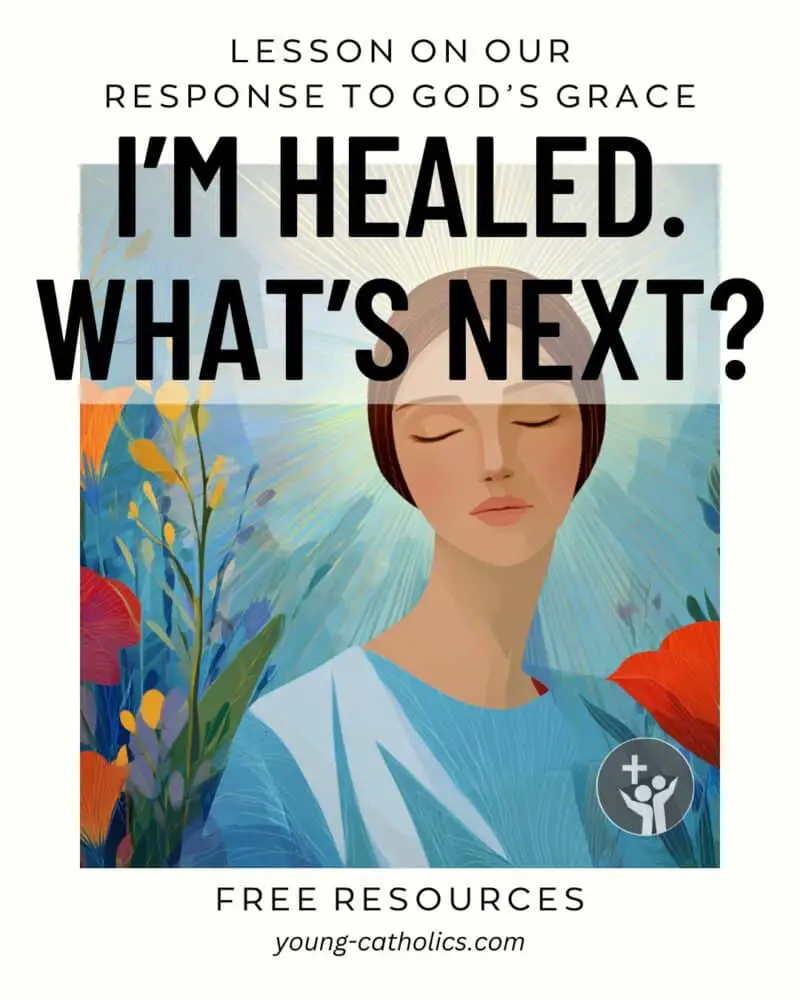The Sacrament of Reconciliation (Confession)

Reconciliation is one of the seven sacraments in the Catholic Church. It is sometimes called Confession or Penance. It is a sacrament of grace. In Reconciliation, we confess our sins to a priest. The priest listens, offers guidance, and forgives our sins in Jesus’ name. This is a powerful gift from God. It shows His great love and mercy for us.
Reconciliation is important because it brings us closer to God. Sin separates us from Him. But in Reconciliation, we ask for forgiveness and receive it. We are healed and made new again. Regular confession helps us stay strong in our faith. It helps us grow spiritually and avoid sin in the future.
This sacrament is not just about admitting what we did wrong. It is also about finding peace in Jesus. We bring Him our struggles and weaknesses. We meet Him in our brokenness, and He lifts us up. Reconciliation gives us a chance to start fresh. It reminds us of God’s mercy and His desire to help us be better.
Receiving this sacrament often makes a difference. It helps us see the habits that lead us away from God. It helps us change for the better, one step at a time. Each time we confess, we open our hearts to God’s grace. It’s not just a duty—it’s an invitation to grow closer to Jesus.
Reconciliation: A Path During Advent and Lent
Advent and Lent are special times in the Church. Advent prepares us for Jesus’ birth at Christmas. Lent prepares us for Jesus’ death and resurrection at Easter. Both seasons call us to reflect on our lives and grow closer to God. Reconciliation helps us do this. It allows us to clear our hearts and make room for Jesus.
During Advent, we get ready for Jesus to enter our lives again. We look for ways to welcome Him with a pure heart. Confession during Advent helps us do that. It helps us leave behind old sins and start fresh. It helps us focus on Jesus and His coming.
Lent is a time of repentance. It lasts 40 days and reminds us of Jesus’ time in the desert. It is a time to turn away from sin and turn back to God. Confession during Lent helps us repent. It helps us reflect on Jesus’ sacrifice for our sins. It helps us understand how much He loves us.
Going to confession during these seasons can be powerful. It deepens our spiritual journey. It helps us see what keeps us from God. It helps us receive God’s mercy in a meaningful way. Make Reconciliation a part of your Advent and Lent traditions. It will help you grow closer to Jesus in these holy seasons.
Regular Confession: Growing Closer to God
Confessing our sins often is good for our spiritual growth. Many Catholics find that going to confession once a month helps them. Frequent confession keeps us aware of our sins and weaknesses. It also helps us build a stronger relationship with God.
When we go to confession often, we begin to see patterns in our sins. We notice what sins we repeat and what leads us to them. This awareness is important. It helps us understand where we need to change. It helps us take small steps toward becoming better Christians.
Frequent confession also brings more peace to our hearts. It helps us let go of guilt and shame more quickly. It reminds us of God’s mercy and love. When we make this a regular habit, it becomes easier to approach the sacrament. It feels like a normal part of our faith journey.
To start a habit of regular confession, set a date each month. Put it on your calendar. You can go alone, with a friend, or as a family. Do not worry about having a long list of sins. Just be honest with God and the priest. Over time, you will see how regular confession helps you grow in faith and holiness.
Confession: Facing Fears and Finding Peace
Many people feel nervous about going to confession. It can be hard to admit our sins out loud. We may feel ashamed or afraid of being judged. But confession is not about punishment. It is about God’s mercy and love. It is a safe place to be honest and start fresh.
To make confession more comfortable, be open with the priest. If you are nervous, say so. Priests understand that confession can be hard. They are there to help, not to judge. Remember that priests have heard many confessions. They want to help you find peace and forgiveness.
Focus on being honest during confession. You do not have to remember every detail of your sins. Just speak from your heart. God already knows your sins and wants to forgive you. When you are honest, you allow God’s grace to work in you.
Try to see confession as a normal part of Catholic life. The more often you go, the easier it becomes. It helps you feel lighter and closer to God. Think of it as a way to grow, not something to fear. Trust that God welcomes you, no matter how many times you fall.
Confession: A Spiritual Checkup
Think of confession like a “spiritual checkup.” It is similar to visiting the doctor for a regular health exam. Just like we take care of our bodies, we need to take care of our souls. Confession helps us see how we are doing spiritually and where we need to improve.
Sometimes, we expect a big moment in confession, but growth often happens slowly. Regular confession lets us see small progress over time. Maybe we struggle less with a certain sin. Maybe we respond with more patience. Each time we confess, we take another step forward. These small changes matter.
Frequent confession helps us become more aware of God’s grace in everyday life. We start to notice His presence more often. We recognize when He gives us strength to avoid sin. We see His help in making better choices. This awareness makes our faith feel real and alive.
Confession as a “spiritual checkup” makes it less intimidating. It reminds us that we are always growing. We will never be perfect, but God’s grace is always there. Going regularly helps us stay on track and stay connected to Him. It is not about waiting for a big change, but about meeting Jesus where we are.
Leading by Example: Encouraging Youth in Confession
It is important to set a good example for young Catholics. Children and teens learn about faith by watching adults. When adults go to confession regularly, it teaches youth that the sacrament matters. It shows that seeking God’s forgiveness is normal and good.
Families, youth groups, and ministries can go to Reconciliation together. This makes it less scary for young people. It becomes a group activity instead of something to fear. Going together also builds trust and unity. It shows that everyone needs God’s mercy, no matter their age.
After confession, find ways to celebrate together. Go out for pizza, ice cream, or a simple meal. Have a small prayer time or a discussion about the experience. This makes confession feel positive and joyful. It helps young people see it as a part of their faith journey.
Be open about your own need for confession. Share how it helps you grow closer to God. Young Catholics need role models who are honest about their faith. By leading the way, you encourage them to embrace Reconciliation as a normal part of life.
Resources for the Sacrament of Reconciliation

How Can I Get Clean? Discussion and Reflection Questions
The “How Can I Get Clean?” Reconciliation Lesson Plan teaches youth about spiritual cleanliness. It shows that sin leaves marks on our souls, just like stains on clothes. It explains that Jesus wants to help us get clean through confession.
The lesson helps youth reflect on bad habits and seek Jesus’ help to change. It reassures them that priests are there to help, not judge. This makes confession less scary. The lesson also encourages celebrating after confession, making it a joyful experience. It reminds youth that receiving Jesus’ forgiveness is something to be happy about.

I’m Healed. What’s Next? Reflection and Discussion Questions
This lesson plan focuses on healing and gratitude, based on Mark 1:29-39. It shows how Simon Peter’s mother-in-law responds to Jesus’ healing by serving others.
Youth are encouraged to think about how they can respond to Jesus’ grace. It highlights Reconciliation and Anointing of the Sick as ways to receive spiritual healing. The lesson challenges youth to find ways to serve others in response to God’s grace. It suggests acts of kindness within their family or community, connecting service with gratitude for Jesus’ healing in their lives.

Examination of Conscience – Various Versions: The USCCB site includes examinations of conscience based on the 10 commandments, for the public square, reflecting on Catholic social teaching, an examination of conscience for children, one for young adults, one for singles, and one for married Catholics.
Social Media Graphics and Bulletin Artwork
A Moment of Mercy

Share the beauty of God’s forgiveness with this inspiring image of the Sacrament of Reconciliation. Perfect for parish bulletins, newsletters, or other faith resources, it reminds us of Christ’s mercy and the peace that comes from confession.
Download it today to help encourage others to embrace God’s healing grace and return to Him with open hearts.
Paid subscribers may download a large copy this digital artwork without watermarks, suitable for use in bulletins, social media, newsletters, etc., free of charge by clicking here. You must be logged in as a paid subscriber to access the file.
Only current paid subscribers have the rights to use the artwork.
Questions and Answers about Reconciliation
What is Reconciliation?
Reconciliation, also called Confession or Penance, is a sacrament in the Catholic Church. We confess our sins to a priest, and he forgives us in Jesus’ name. It is a way to receive God’s mercy and start fresh.
Why should I go to Confession?
We all make mistakes and sin. Confession helps us ask for God’s forgiveness and grow closer to Him. It helps us feel peace in our hearts and lets us start over.
How often should I go to Reconciliation?
It is good to go at least once a year, but many Catholics go once a month. Frequent confession helps us stay aware of our sins and build a stronger relationship with God.
What do I say during Confession?
Begin with the Sign of the Cross and say, “Bless me, Father, for I have sinned.” Then, tell the priest how long it has been since your last confession. Confess your sins honestly, and listen to the priest’s advice and penance. He will then give you absolution (forgiveness).
What if I forget some sins?
Do your best to remember your sins, but do not worry if you forget some. If you remember a serious sin later, mention it at your next confession. God forgives all your sins when you are truly sorry.
What is the priest’s role in Reconciliation?
The priest listens, offers advice, and forgives sins in Jesus’ name. He is there to help, not to judge. He keeps everything you say private.
Do I have to be afraid of Confession?
No, there is no need to be afraid. It can feel hard to say our sins out loud, but the priest wants to help you find peace. Remember, God is always ready to forgive.
Can children go to Confession?
Yes, children usually have their First Reconciliation before First Communion. After that, they can go to confession anytime. It is good for children to learn that Reconciliation is a regular part of faith.
Healing and Grace
Reconciliation, also called Confession, is one of the seven sacraments in the Catholic Church. In this sacrament, we confess our sins to a priest. The priest forgives our sins in Jesus’ name. It is a special way to receive God’s mercy and start fresh.
Confession helps us grow spiritually. It brings us closer to God by healing our relationship with Him. Regular confession, like going once a month, can help us identify patterns of sin. It helps us become more aware of our need for God’s grace in daily life.
Reconciliation is not just for serious sins. It is for all the times we fall short. It is a “spiritual checkup” that keeps us on track. It allows us to let go of guilt and shame. It helps us find peace in Jesus. This sacrament is also an important example for children and youth. Going together as a family or group can make it easier and more meaningful.
Your Turn
Make Reconciliation a regular part of your faith journey. It helps you receive God’s mercy and grow closer to Him. Try going once a month to see how it changes you over time.
Share your experiences in the comment section below. How has Reconciliation helped you? What fears have you overcome? Your story can inspire others.

Leave a Reply